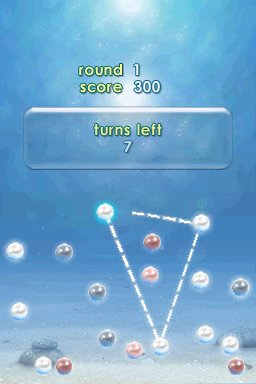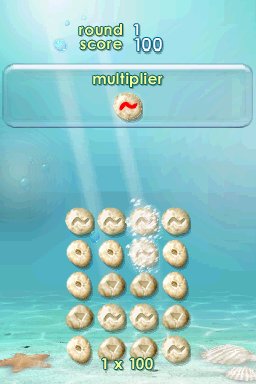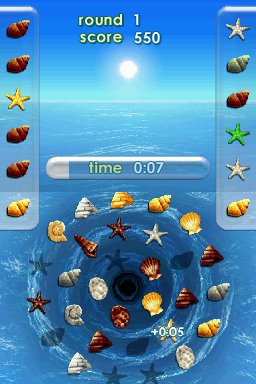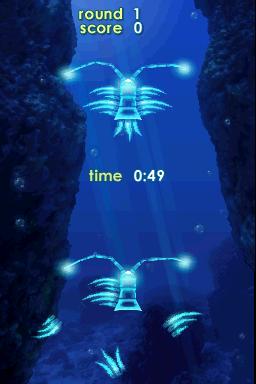GamesRadar+ Verdict
Pros
- +
Calm setting
- +
Actually has an atmosphere
- +
Six games from which to choose
Cons
- -
Rainforest's games are better
- -
Low-key style may put off some
- -
No multiplayer
Why you can trust GamesRadar+
Like its rainforest-focused sister game, Zenses: Ocean mines an uncommon vein of videogaming: Relaxation. Basically, while most games – even puzzle games – are all about frying your nerves with an ever-increasing pace, pyrotechnic special effects, and an exhausting array of more and more pumped up opponents, Zenses would rather help you chill out and calm down.

Thus, the six puzzle games on offer here offer an almost – sorry, no pun intended – zen-like simplicity, and the whole thing is laid out more like a relaxation spa than the usual cosmic plane or battlefield. The backgrounds are all sandy beaches and blue waters, and the music is soft, sparse and new age-y, full of leisurely keyboards and flutes. Even the puzzles get into the act, (mostly) discarding the usual colored squares or gems in favor of pearls, turtle shells, and starfish.
Zen-stones lays a grid of rune-carved pebbles down and tasks you with removing them. The catch? The pebbles only disappear when two with the same rune are touching, and when you zap two stones, the arrangement shrinks, with some stones shifting position to fill in the newly vacated spaces. Shell Twirl takes the opposite approach, asking you to fill concentric rings with the requested shells and starfish, and giving bonuses for placing objects of the same color next to one another. And Wave Breaker is a memory game in which you see objects on a beach and have to find them again after a wave has covered them up with sand.

Then come the weaker puzzles. Pearl Diver places pearls onscreen that disappear when you touch them or draw lines connecting them to one another. But your turns are limited, and if you want more, you have to connect thee pearls in a triangle shape that contains a fourth pearl. Turtle Turn is a take on Othello, with the player touching turtle shells to flip them – and any adjacent shell – black or white side up to match the pattern on the top screen. And Hot Spot takes apart a glowing sea creature so you can reassemble it while the pieces slowly spin.
As you can probably tell, all of the games are simple in concept – but that’s more a comment on the game’s style than a complaint. And while each game is remarkably easy to play when it begins, and takes its time in ramping up the difficulty, there are sliders that enable you to raise the level of challenge right away.

It’s also definitely worth mentioning that this is the weaker of the two Zenses titles by a mile. Rainforest has better puzzles and a stronger style. But both strike a definite atmosphere – whether that atmosphere is right for you or not is another question. This is an experience so subdued, it’s almost a lullaby. But if you’re into that vibe and want something legitimately fresh, see how your senses react to Zenses: Rainforest. And if you like that, take a dip in the Ocean.
Dec 31, 2008
More info
| Genre | Puzzle |
| Description | Another collection of dead simple puzzle games that aren’t quite zen-like, but which are more soothing and grounded than most. |
| Platform | "DS" |
| US censor rating | "Everyone" |
| UK censor rating | "Rating Pending" |
| Release date | 1 January 1970 (US), 1 January 1970 (UK) |



